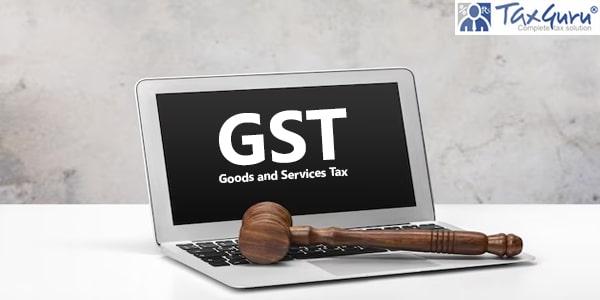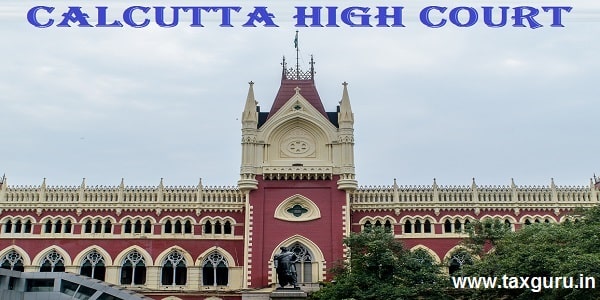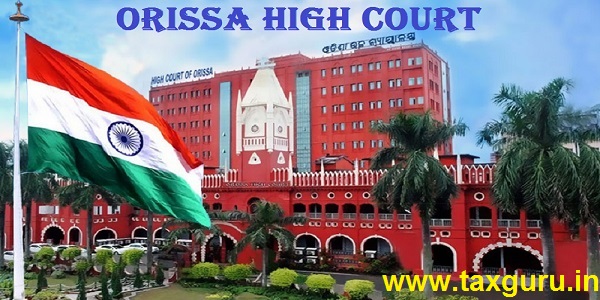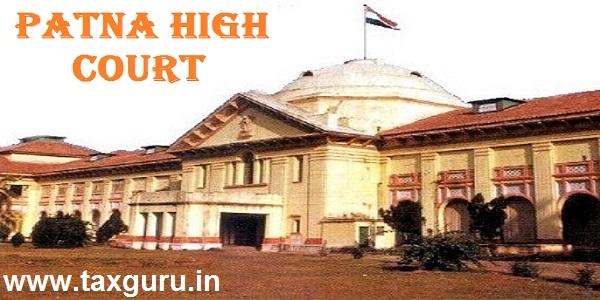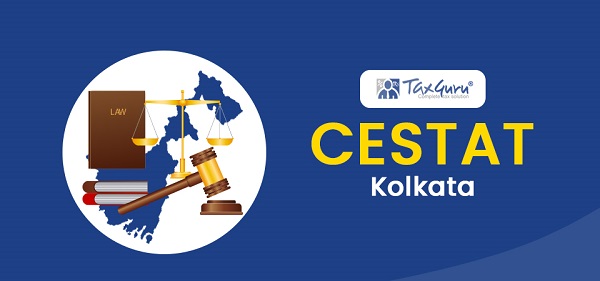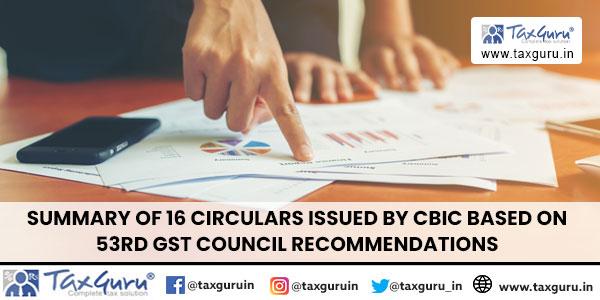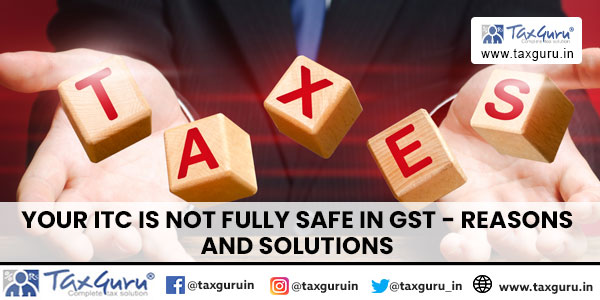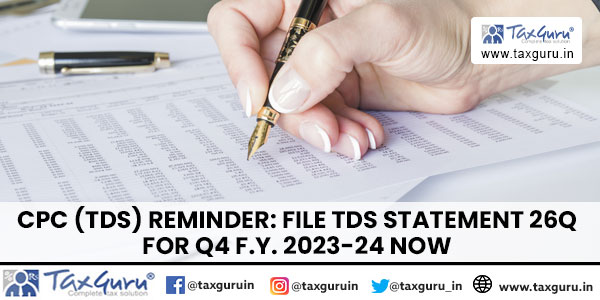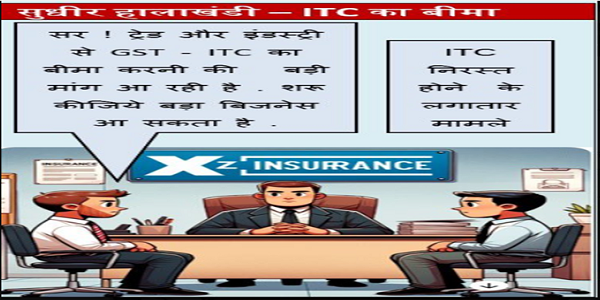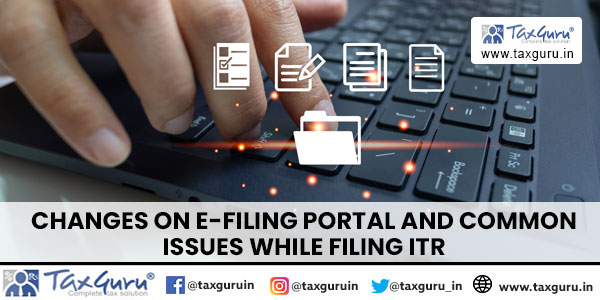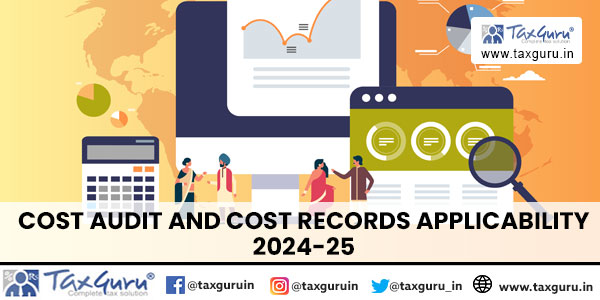As we all are aware that the Budget for 2021-22 was announced on 1st February 2021. Here is the complete compilation of all major amendments.
1. Income Tax Act
- For Individual Taxpayers
a) There is no change in Tax Rates.
b) Exemption for LTC Cash scheme – Section 10(5)
Due to COVID 19, many individuals could not avail LTC exemption for block 2018-2021. To provide the benefit of same, Section 10(5) has been amended. The amendment is applicable for AY 2021-2022 only and can be availed by individuals on expenditure done between 12 October 2020 and 31 March 2021 for purchase of goods or services which attract GST @ 12% or more.
The payment of such expense should be made by account payee cheque/draft/ECS and other prescribed modes. However, the exemption is restricted to 1/3rd of expense or Amount received from employer for LTC, whichever is less, subject to maximum of Rs 36000 per family member.
c) Section 80EEA- Deduction of interest on housing loan
The individuals, who have availed loans for purchase of residential property, which was sanctioned between 1st April 2019 and 31 March 2021, can avail the deduction of interest payment on such loan.
The government has proposed to extend the deduction u/s 80EEA by one year i.e., upto 31st March 2022.
Hence, all loan sanctioned upto 31 March 2022 shall be eligible for deduction of interest u/s 80EEA i.e., Rs. 1,50,000/- subject to other conditions.
d) Relief to Senior-citizen (Age more than 75 years) Section 139
Senior citizens of age of 75 years or more has an option not to file their return of income if their income comprise of Pension and/or interest income only.
To avail this benefit, the assessee must give a declaration to the bank where his/her income is credited. The bank shall compute tax liability and deduct the tax u/s 194P. This will be applicable from 1 April 2021.
Author Remark
This is applicable only if your pension and bank interest is receiving in same bank account. It means if you have more than one bank account then this option will not attract.
e) Withdrawal of exemption for Unit Linked Insurance Plans – Section 10(10D)
It has been proposed to exclude amount received from ULIPs issued on or after 1st Feb 2021 and have annual premium payable of more than Rs. 2,50,000. Thus, same shall be taxable.
Further, where more than one ULIPs are issued in the name of a person on or after 1st Feb 2021 and aggregate of premiums payable on the same exceed Rs. 2,50,000, are also excluded from the benefit of Section 10(10D).
Author Remark
Any amount received from such ULIP(s) on death of assessee shall be exempted.
f) Interest on short payment of advance tax on Dividend income – Section 234C
If the shortfall in the advance tax installment or the failure to pay the same on time is on account of the dividend Income, Other than dividend referred to in section 2(22)(e), no interest under section 234C shall be charged provided the assessee has paid full tax in subsequent advance tax installments after the dividend is declared or distributed.
In case where no subsequent installments are due, advance tax on such dividend income is paid on or before 31st March.
g) Taxability of Provident fund Interest
It is proposed that an exemption shall not be available for the interest income accrued during the previous year to the extent it relates to the employee’s contribution exceeding Rs 2,50,000 deposited in a previous year.
Author Remark
Now the loophole of tax planning is completely plugged.
- For Business Entities
a) There is no change in Tax Rates.
b) Income Tax Audit Limit Increased (Section 44AB)
The threshold limit for tax audit under section 44AB has been proposed to increase from Rs. 5 Crore to Rs. 10 Crore for those assessee, where amount received in cash is less than 5% of total receipts and amount paid in cash is less than 5% of Aggregate payments during the year.
This amendment will take effect from 1st April 2021 and will accordingly apply for the assessment year 2021-22 and subsequent assessment years.
This amendment is made to promote digital economy and to reduce compliance burden.
c) Section 36(1)(va) and Section 43B – Delay in payment of contribution of PF and ESI
In case of delay in payment of employee’s contribution of PF and ESI from the due date of respective act (PF and ESI Acts) it is not allowed under section 36(1)(va). It has been clarified that provision of section 43B does not apply and deemed to never have been applied for the purposes of determining the due date under section 36(1)(va). Thus, employee’s contribution if deposited after due date prescribed in PF and ESI acts, shall never be allowed as deduction.
Author Remark
By this amendment, all ambiguity has stopped. Since there was various judgment of Courts wherein employee’s contribution deposited after the due dates of respective act but deposited before due date of filing Income Tax Return u/s 139(1) of Income Tax Act, 1961 was allowed under section 43B.
d) TDS on purchase of Goods – Section 194Q
With Effect from 1 July 2021, TDS is required to be deducted at the rate of 0.1% in case of purchase of goods.
Applicability
This is applicable where total sales, gross receipts or turnover of buyer exceed Rs. 10 Crore during the financial year immediately preceding the financial year in goods is purchased and goods purchased from the seller exceed Rs. 50 Lakh in the previous year.
However, TDS is not required to be deducted under this section if TDS / TCS is deductible or collectible under any other the provisions of Income Tax Act Except TCS under section 206C(1H). Thus, in case TCS is collectible under section 206C(1H), TDS under this section shall be applicable and deducted by buyer.
Author Remark
Practically, TCS under section 206C(1H) become irrelevant because TDS is to be deducted and deposited, Expenses booked or paid whichever is earlier.
Further, with due respect to government decision, this section is not required, since GST is applicable on this transaction, and GST is already migrated with income tax. Hence the basic concept of introducing TDS is already meet.
e) Amendment in section 206AA
It is also proposed to amend sub-section (1) of section 206AA of the Act and insert second proviso to further provide that where the tax is required to be deducted under section 194Q and Permanent Account Number (PAN) is not provided, the TDS shall be at the rate of 5%.
f) TDS on divided to Business Trust is exempt – Section 194.
Section 194 of the Act provides for deduction of tax at source (TDS) on payment of dividends to a resident. It is proposed to amend second proviso to section 194 of the Act to further provide that the provisions of this section shall not apply to dividend credited or paid to a business trust by a special purpose vehicle or to any other person as may be notified.
g) Deduction to Start-up Extended by one year – Section 80IAC.
Section 80-IAC of the Act provides for a deduction of 100% of the profits of an eligible start-up for 3 consecutive assessment years out of 10 years at the option of the assessee.
This is subject to the condition that eligible start-up is incorporated on or after 1st April 2016 but before 31st March 2021.
Now section 80- IAC proposed to amend the last date of incorporation of eligible start-up before 31st March 2022. Hence, one more year is granted to start-ups.
h) Deduction to affordable housing extended by one year – Section 80IBA.
Deduction of 100% of profit derived from affordable housing projects is allowed under section 80IBA. To take this deduction , there was a condition that the project should be approved by the competent authority after the 1st of June 2016 but on or before the 31st of March 2021.
Now section 80-IBA is proposed to amend the last date of approval of project before 31st March 2022. Thus, exemption to companies providing affordable housing has been extended if project is approved by competent authority till 31st March 2022.
i) No depreciation on goodwill – Section 32
It has been proposed that goodwill of a business or profession will not be considered as a depreciable asset and there would not be any depreciation on goodwill of a business or profession in any situation.
In a case where goodwill is purchased by an assessee, the purchase price of the goodwill will continue to be considered as cost of acquisition for the purpose of computation of capital gains under section 48 of the Act subject to the condition that in case depreciation was obtained by the assessee in relation to such goodwill prior to the assessment year 2021-22, then the depreciation so obtained by the assessee shall be reduced from the amount of the purchase price of the goodwill.
Author Remark
In case of self-generated goodwill, the cost of acquisition shall be taken as NIL.
j) Presumptive Taxation not application on LLP – Section 44ADA
Section 44ADA provides for presumptive taxation in case of professional income. There was an ambiguity whether the section applies in case of LLP or other assessee.
Now amendment has been proposed in section 44ADA specifying the assessee on which this section shall be applicable. Now section 44ADA shall be applicable in case of individual, HUF and Partnership firms other than LLP.
Author Remark
Practically, an HUF cannot do business of Profession.
k) Higher rate of TDS and TCS on non-filing of return – Section 206AB and 206CCA
Section 206AB and 206CCA has been inserted to provide for higher rate for TDS and TCS, respectively, for the non- filers of income-tax return.
As per these sections, TDS and TCS shall be deducted at twice the rate specified or rate in force or 5% whichever is higher in case of a person who has not filed the returns of income for both of the two assessment years relevant to the two previous years immediately prior to the previous year in which tax is required to be deducted, for which the time limit of filing return of income under sub-section (1) of section 139 has expired.
These provisions shall be applicable on in case of deductee / collectee where the aggregate of tax deducted at source and tax collected at source is Rs. 50,000/- or more in each of these two previous years for which return is not filed.
Proposed section shall not apply where the tax is required to be deducted under sections.
-
- 192 (Salaries),
- 192A (PF),
- 194B (Winning from lottery etc),
- 194BB (Winning from horse rates),
- 194LBC (income received from a securitisation trust) or
- 194N (Cash withdrawal exceeding Rs 20 lakh) of the Act.
Author Remark
Practically, it is exceedingly difficult for an assessee to identify whether the person has filed its return or not.
• Amendments in Assessment, Appeals, Dispute Resolution Etc.
a) Time limit for filing Revised Return or Belated Return reduced – Section 139.
The time period for filing belated return u/s 139(4) or revised return u/s 139(5) has now been reduced by 3 months. It was earlier allowed to be filed or revised upto end of the relevant assessment year or before completion of assessment, whichever is earlier.
Now, w.e.f. AY 2021-22, it is proposed to reduce the time limit for filing belated return or revised prior to 3 months before the end of the relevant assessment year, or before the completion of assessment, whichever is earlier. Hence, all returns last date will be 31st December, instead of 31st March.
b) Relaxation in Conditions for treating a return as Defective – Section 139(9)
Under Explanation to section 139(9), certain situations are prescribed w.r.t. which if there is a non-compliance while filing the ITR, it makes the ITR as defective and if that could not be rectified within 15 days from intimation by the Tax department, such defect renders the return as invalid.
As per the Budget, CBDT will now notify the class of assessee in whose cases even if such situations are not complied in the ITR, still it will not make the return as invalid or defective. This will be applicable from AY 2021-22 onwards.
c) Income escaping assessment and search assessments – Section 148 & 153A.
A new procedure has been prescribed to conduct re-assessment proceedings and search assessments specifically in view of the risk management strategy formulated by CBDT from time to time.
Further, w.e.f. 1stApril 2021, Re-opening u/s 148 cannot be made after 3 years from the end of the relevant assessment year.
Beyond 3 years but not beyond 10 years, if income escaping assessment exceeds or likely to exceed Rs. 50 Lakhs.
d) Time limit for completion of assessment – Section 153
The time limit as prescribed u/s 153 for completion of assessment by the Income Tax department u/s 143(3) or 144 has now been further reduced.
W.e.f. AY 2021-22, the assessment is to be completed within 9 months from the end of the relevant assessment year.
Author Remark
Practically, the Late fess of Rs. 10,000/- which levied , if return filed after 31st December, become irrelevant because now you cannot file your return beyond 31st December.
e) Time limit for completion of assessment – Section 153
It is proposed to reduce the time limit for issue of notice under sub-section (2) of section 143 of the Act from 6 months to 3 months from the end of the financial year in which the return is furnished.
Author Remark
Practically, there is no reduction in time limit, because now the last date of filing of return is 31st December. Hence, department will get complete 1 year for assessment.
f) Time limit for issuance of notice
It is proposed to reduce the time limit for issue of notice under sub-section (2) of section 143 of the Act from 6 months to 3 months from the end of the financial year in which the return is furnished.
Author Remark
Practically, there is no reduction in time limit, because now the last date of filing of return is 31st December. Hence, department will get complete 1 year.
g) Income Tax Appellate Tribunal proceedings to be made faceless.
The faceless scheme of conducting the income tax assessments and first appellate body has now been extended to the second appellate body under the Income Tax Act, i.e., ITAT.
This faceless scheme has been proposed to be made applicable from 1st April 2021, however, the directions in this regard are to be issued by the Central Government before 31st March 2023.
Author Remark
With due respect on government decision, in my opinion this amendment done quite early as still did not identify the pros n cons of faceless assessment and appeal. Once, we identify the challenges in that, then we can move ahead with this
h) Constitution of Dispute Resolution Committee for small assessee
The Budget has proposed u/s 245MA, the constitution of Dispute Resolution Committees to resolve disputes of small assessee having returned income of less than Rs. 50 Lakhs, proposed addition is not more than Rs. 10 Lakhs and the matter does not relate to issues under specified laws where detention, prosecution or conviction provisions are there.
The section is made applicable from AY 2021-22 and scheme under this is to be issued by the Central Government before 31st March 2023.
i) Discontinuance of Settlement Commission
The Income Tax Settlement Commission has been discontinued w.e.f. 1stFebruary 2021. All the pending applications before the Settlement Commission are either allowed to be withdrawn by the assessee and shall be continued before the Assessing Officer and if such application is not withdrawn, it will be transferred to an Interim Board. The scheme of Interim Board will be notified by the Central Government on or before 31stMarch 2023.
- Other Income Tax Amendments
a) Provisional attachment of property during proceeding u/s 271AAD – Section 281B
Section 281B of the Act provides that in cases of assessment or reassessment the Assessing Officer may provisionally attach any property of the assessee, if necessary, in order to protect the interest of revenue.
It is proposed to amend the provision of section 281B of the Act to enable the Assessing Officer to provisionally attach any property of the assessee, if necessary, during the pendency of proceedings for imposition of penalty under section 271AAD of the Act. Section 271AAD of the Act was inserted vide the Finance Act, 2020 to impose penalty on a person or a person who causes such person to make a false entry or omit an entry from his books of accounts.
b) Clarification on provisions of Equalisation Levy inserted by Finance Act 2020
It has been clarified vide the Budget that the transactions which are considered as payment for royalty or FTS as per the Income Tax Act or the DTAAs shall not be covered for chargeability under the provisions of Equalisation Levy. With respect to e-commerce sale or supply it has also been clarified that even one or more of any of the activity, namely, acceptance of purchase order, payment or supply partly or wholly shall be considered as online sale or provision of service.
Equalisation levy is applicable irrespective of whether the non-resident e-commerce operator owns the goods or not or facilitates the services or not. it is also provided transactions on which equalization levy is chargeable and on which exemption from taxation is given u/s 10(50) shall not be applicable on transaction of royalty or FTS.
c) Rationalisation of the definition of slump sale – Section 2
The definition of slump sale u/s 2(42C) as has been expanded to mean transfer of an undertaking by any means and now transfer of any type as covered by section 2(47) shall be considered as means of transfer. Therefore, now, exchange or consideration in any form (including in Kind) for transfer of an undertaking shall make it a slump sale.
d) Rationalization to avoid double claim as application of funds by Trusts.
Voluntary contributions received by the institutes or trusts registered u/s 10(23C) or 11/12A/12AB with specific directions that it shall form part of corpus will now be eligible for claim as application, if such amount is invested in the specified modes prescribed u/s 11(5).
Further, application by these institutes or trusts from loans or borrowings shall be considered as application of income only at the time of repayment of loan. These amendments shall come into effect from AY 2022-23 onwards.
e) Set off of deficit not to be allowed to Charitable Institutions.
Computation of income required to be applied or accumulated during the previous year, no set off or deduction or allowance of any excess application, of any of the year preceding the previous year, shall be allowed.
f) Increase limit of 10(23C)
Exemption limit of annual receipt revised from Rs. 1 crore to Rs.5 crore for small charitable trusts running schools and hospitals.
Author Remark
Consolidated Turnover to be taken for an assessee while computing receipts of Rs. 5 crores. Indeed, it is a good amendment.
g) Pre-fillings of returns
Currently, pre-filled details of salaries, interest income, TDS, tax payments, etc are available to a taxpayer.
Now, it is proposed to provide pre-filled details of capital gains from listed securities, dividend income, etc.
2. Amendments in Companies Act and similar
a) Easing Compliance requirement of Small companies
The definition under Companies Act, 2013 for small companies is revised by increasing their thresholds limits for Paid up capital from “not exceeding Rs. 50 Lakh‘ to “not exceeding Rs. 2 Crore‘ and turnover from “not exceeding Rs. 2 Crore‘ to “not exceeding Rs. 20 Cr‘.
b) Promoting start-ups and innovators by incentivizing the incorporation of One Person Companies (OPCs)
1. Allowing their growth without any restrictions on paid up capital and turnover.
2. Allowing their conversion into any other type of company at any time,
3. Reducing the residency limit for an Indian citizen to set up an OPC from 182 days to 120 days and
4. Allowing Non-Resident Indians (NRIs) to incorporate OPCs in India.
3. Amendments in GST Act, 2017
a) GST on Club/Association (Section 7(1)(aa) inserted)
Government proposed a retrospective amendment by way of insertion of this sub clause (aa) to ensure the levy of tax on the amounts collected from the members towards the supply of goods/services. (aa) the activities or transactions, by a person, other than an individual, to its members or constituents or vice-versa, for cash, deferred payment, or other valuable consideration.
Explanation–– For the purposes of this clause, it is hereby clarified that, notwithstanding anything contained in any other law for the time being in force or any judgment, decree or order of any Court, tribunal or authority, the person and its members or constituents shall be deemed to be two separate persons and the supply of activities or transactions inter se shall be deemed to take place from one such person to another:”
b) Input Tax Credit (Section 16(2)(aa) inserted)
The government by way of this proposition seems to add a condition for determining the eligibility of Input Tax Credit.
(aa) the details of the invoice or debit note referred to in clause (a) has been furnished by the supplier in the statement of outward supplies and such details have been communicated to the recipient of such invoice or debit note in the manner specified under section 37.
In a way this proposition gives the statutory backup to the most disputed and deliberated upon rule i.e., Rule 36(4) of CGST Rules.
Author Remark
This insertion of sub- clause (aa) makes the recipient dependent on the supplier and
his filling of statement of outward supply u/s. 37.
c) GST Audit Section 35(5) now omitted.
Taxpayers are required to upload a copy of audited annual accounts reconciliation statement certified by CA or CMA (GSTR-9C). Now, a self-certified reconciliation statement along with audited annual financial statement shall be uploaded.
Sub-section (5) of section 35 of the CGST Act is being omitted so as to remove the mandatory requirement of getting annual accounts audited and reconciliation statement submitted by specified professional.
Hence, there will be no requirement for the taxpayers to get his books of accounts audited by a CA or CMA (GSTR-9C).
d) Proviso in 50(1)- Interest on net liability
This as most awaited and must need amendment. This provision is being amended, retrospectively from 1st July 2017, so as to charge interest on net cash liability.
e) Seizure and Confiscation
Section 74 of the CGST Act is being amended so as make seizure and confiscation of goods and conveyances in transit a separate proceeding from recovery of tax.
Author Remark
This proposed amendment shall be having a wide impact on all those taxpayers who are getting their proceedings concluded by way of paying the tax, interest, and penalty (if any) u/s. 73 or 74.
Prior to this proposed amendment, even the proceedings of Section 129 and 130 were getting concluded but now those proceedings will continue and therefore the person will be liable to pay applicable and imposed penalties u/s. 129 or 130.
This means conclusion of proceedings will lead to conclusion of proceedings u/s. 73 or 74 and the proceedings u/s 122 and 125 but not the proceedings u/s 129 and 130.
f) Self Assessed Tax Clarification
The explanation is being inserted to clarify the ambiguity. This explanation proposed to be inserted clarifies that self-assessed tax will not only include the tax payable as per return u/s 39 but it will also include the outward supplies shown as per the statement of outward supplies u/s 37.
This means the spectrum of the term self-assessed tax is widened by this proposed amendment and the recovery can be initiated by the officer not only for tax payable as per Section 39 return but also for the outward supply liability shown in the statement filled u/s. 37.
Earlier, there was a confusion as to whether SCN needs to be issued to recover the tax if the taxpayer declares his tax liability in GSTR-1 but failed to pay in GSTR-3B.
With this insertion of explanation, it has now become crystal clear that such tax liability can straightaway be recovered under section 79 (recovery of arrears).
g) Section 107(6) inserted
For detention/sizer of goods – A proviso is being inserted to provide that no appeal shall be filed against an order made under Sec 129(3) unless a sum equal to 25% of penalty has been paid by the appellant.
As per the Law, the pre-deposit prior to this amendment was only to the extent of 10% of Tax Liability in case of dispute which is now proposed to be 25% of the penalty amount in case of detention and seizure of conveyance and goods during transit.
h) Amendment in Section 129(1)(i)(a)(b)
The “tax” term is deleted from the provision which means now getting the conveyance and goods released, only penalty is required to be paid by the concerned person. But the penalty is increased to 200% from 100% which means no relief to the taxpayer.
Author Remark
Prior to amendment, assessee was liable to pay 200% (Tax + Penalty) and now after amendment also, assessee is liable to pay 200% therefor no relief to the taxpayer.
i) Section 129(2) now omitted.
This proposition has the impact that now the conveyance and goods detained by the officer cannot be released on execution of bond and bank guarantee as security meaning thereby the penalty imposed by the officer will have to be paid in cash by the taxpayer.
j) Section 129(4) amended.
No opportunity of being heard will be given to the assessee for the tax and interest portion for release of goods. Now, the assessee is being called for Penalty only.
k) Section 129(6) amended.
Prior to proposed amendment, the provision was if person does not pay tax and penalty within 14 days of seizure, the conveyance and goods detained were liable for confiscation as per section 130.
After the proposed amendment, the effect will be that the goods or conveyance detained or seized shall become liable to be sold or disposed off in the manner prescribed in case the payment of imposed penalty is not made within 15 days from the date of receipt of copy of the order imposing such penalty.
Further, transporter can pay penalty imposed or Rs. 1,00,000/- whichever is less for release of conveyance.
l) Section 16 of the IGST Act
1. Section 16(1)(b) – This proposed amendment restricts the enjoyment of benefits of zero rating in case the supplies are made to SEZ developer or SEZ Unit in a way that now post this amendment the benefits will be available only to the supplies to SEZ developer or SEZ Unit which are for authorised operations and not for any other supplies. Such authorised operations must be as per the SEZ Act, Rules, and other relevant notifications.
2. Section 16(3) – Prior to this proposed amendment, the exporters were having an option.
(i) to export with payment of IGST and claim refund thereof; or
(ii) to export without payment of Tax under LUT and claim refund thereof.
After this proposed amendment, the scheme is supposed to undergo complete change. Now, only notified class of taxpayer/notified class of goods/services are eligible for claiming refund in case the supplies are made with payment of tax.
Therefore, now everyone making supplies with payment of IGST may not be eligible for claiming refund unless they are covered in the notified class of taxpayer or they are supplying notified class of goods/services.
The above discussion means that now most of the taxpayers will have to export without payment of tax and claim refund of the accumulated Input Tax Credit as per the provisions of Section 54 of the CGST Act and Rules made thereunder subject to conditions and procedures as may be prescribed.
Further to this, another impact of this amendment is that the proviso to subsection (3) mandates the collection and realisation of sales proceeds otherwise the refund claimed needs to be deposited back in the treasury of the government along with the interest u/s. 50.
Disclaimer: – The Author’s Remark compiled are my personal observation and Interpretation. The Author disclaims any liability in connection with use of this information.
Please feel free to reach out in case you have any Queries/suggestions…!!
Contact us:
GBC Group
+91-9045773456, +91-9045326352
contact@gbcgroup.in , www.gbcgroup.in





